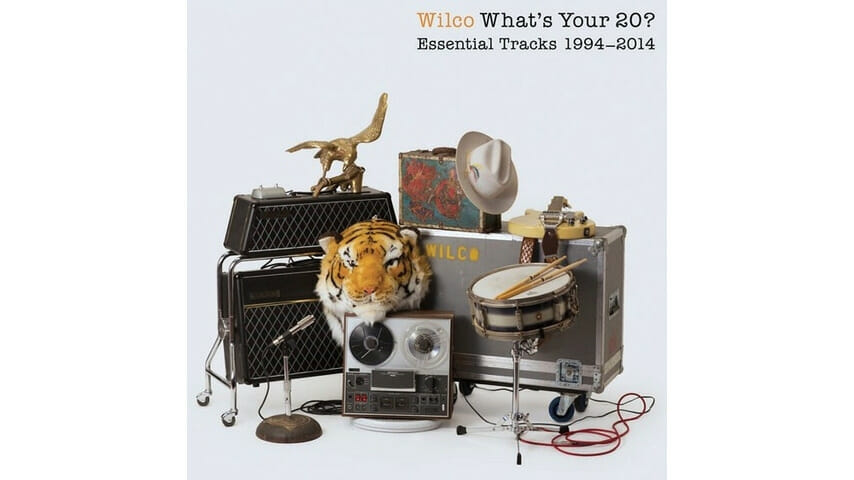Wilco: What’s Your 20? Essential Tracks 1994-2014

Jeff Tweedy started his post-Uncle Tupelo career with a song of dire tribulation and tremendous woe. On “Passenger Side,” which appeared on a comp of St. Louis bands just a few months before the release of Wilco’s debut, the new frontman played the role of a dude who has lost his license and must thumb a ride from a friend. “You’re the only sober person I know,” he declares, but sobriety sounds relative. The driver is swerving from side to side, to which Tweedy complains, “You’re gonna make me spill my beer, if you don’t learn how to steer.” The band stumbles and weaves as much as the driver, and the melody sloshes back and forth precariously, barely holding together. “Passenger Side” is a loser’s anthem, the kind alt-country seemed to love in the mid-1990s: half-assed and totally stoned, man.
-

-

-

-

-

-

-

-

-

-

-

-

-

-

-

-

-

-

-

-

-

-

-

-

-

-

-

-

-

-

-

-

-

-

-

-

-

-

-

-








































